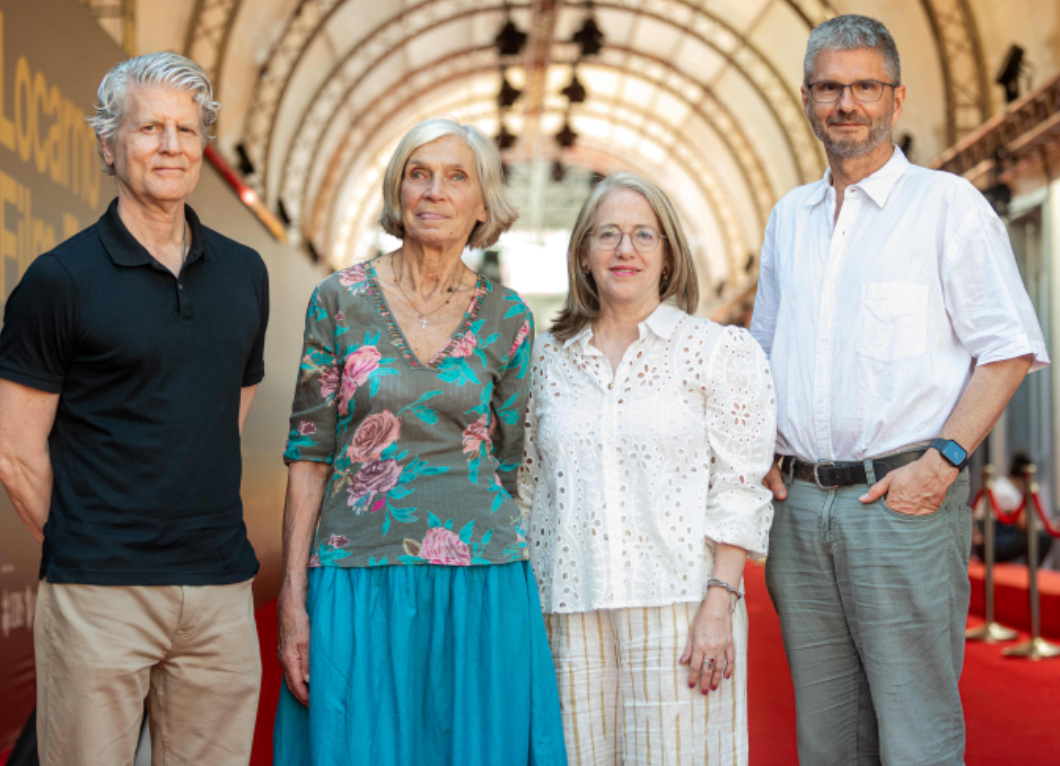The warm summer breeze blows in Locarno, a city that since 1946 has been transformed every August into a gigantic stall, with multiple screens and an omnipresent leopard – in shop windows, umbrellas, statues, T-shirts- a symbol of “the capital of auteur cinema.” The Piazza Grande, in the heart of the Swiss canton of Ticino, is covered with almost 9,000 chairs in front of a 364-square-meter screen. Locarno brings cinema to the people and the people to the cinema. Its 77th edition, held from August 7 to 17, welcomed nearly 180000 spectators, almost 1000 journalists, 220 films, and more than 300 screenings. Unlike any other festival, this one has no barriers between the public and the filmmakers, nor distances that keep the winners away from the people. Without pressure or conditioning factors, Locarno convenes in an open cultural environment, with professionalism and a red carpet where all lovers of good independent or less “industrial” cinema than that which circulates in other class A festivals can walk.
Since 1973, the festival has had an ecumenical jury that rewards filmmakers who, through their artistic talent, succeed in sensitizing viewers to human, social, and transcendent values. This year’s jury was composed of Douglas Fahleson, Irish filmmaker and audiovisual producer; German pastor Dirk von Jutrczenka, dedicated to religion and education; Latvian film critic Anita Uzulniece and Teresa Téramo -who writes these lines with pleasure-, academic coordinator of the Master in Audiovisual Communication at UCA and member of Signis Argentina. The prize of 10,000 Swiss francs went to Saulė Bliuvaitė, from Lithuania, for his film Toxic. The Reformed Churches and the Catholic Church of Switzerland offer that sum, along with a traditional identifying statuette. The jury also awarded a special mention to Mond by Kurdwin Ayub (Austria). In the seventeen films in international competition, we find a common sensitivity of the filmmakers to closely portray family relationships -especially in childhood and adolescence-, to condemn all violence and individualism, to see in nature and friendship a healthy refuge from the exclusionary human systems that “intoxicate” society everywhere on the map.
The intense work of the jury, which took place in an atmosphere of joyful camaraderie, relied on the constant and valuable support of Charles Martig (SIGNIS Switzerland) and Brigitta Rotach (Interfilm Switzerland), who were always ready and attentive to ensure that everything was on time and in order and that we enjoyed the festival and those magnificent screenings at the Plaza Grande, a unique and unforgettable experience.
The film, awarded by the ecumenical jury, was surprisingly also chosen for the Pardo d’Oro by the festival’s international jury (statuette and 75,000 francs) and considered the “Best First Film (Opera Prima).” Bliuvaité’s film presents the story of two teenage friends who dream of becoming models to escape from a society that oppresses them – a toxic environment -. Still, soon, this new place that seems to open doors to realizing their dreams turns into something equally toxic, sacrificial, and lonely. It is a story about the value of friendship that allows us to transcend complex environments: cruel, violent, competitive. Bliuvaitė wisely makes that oppression felt but keeps it out of the frame. She subtly leads viewers to “feel with” the protagonists, understand without judging, reflect on what world we are leaving to teenagers, and regain hope in family and friendship.
The festival has other exciting sections such as Filmmakers of the Present – a space dedicated to first and second works -, which this year awarded Holy Electricity by the Georgian Tato Kotetishvili; the Pardi di Domani section, with three sub-competitions: international, with works by emerging authors from around the world; national, reserved for Swiss productions, and short films where it received the Olivia y las Nubes award, by Dominican director Tomás Pichardo Espaillat.
Another section of Open Doors seeks to “support and highlight talents and films from countries where independent cinema is more fragile.” This section proposes training, exchange, and possible contacts, and for the period 2022-2024, it has set its sights on Latin America and the Caribbean.
The Nights Under the open sky, under the Stars, in the Plaza Grande received intriguing premieres in the Spanish language, such as the film by Paz Vega, a prominent Spanish actress who presented her debut film Rita, a story told from the perspective of a girl – excellent performance – seven years old; México 1986 by César Díaz with the performance of the French-Argentine actress Bérénice Bejo and Reinas, a Peruvian film by Klaudia Reynicke (winner of the audience award). Also, Gaucho, by Michael Dweck, Gregory Kershaw, who fell in love with the Argentine North – specifically Salta – and portrayed in a black and white aesthetic its inhabitants linked to the countryside: their horse training, dances, songs, and typical foods.
In addition to the films, the meetings with filmmakers such as Jane Campion (The Power of the Dog, The Piano Lesson) or Alfonso Cuarón (Gravity, Rome), the members of the jury were able to share a discussion table with the artistic director of the festival Giona Nazzaro for whom -and these were her words-: “It is important that a program can attract cinephiles, professionals and academics, and that it can also attract the largest possible audience because without an audience with which to engage in conversation, all efforts would be useless. Locarno is a festival for the people to celebrate auteur cinema”.
The last day in Locarno made us a little sad, and the Alpine sky identified with our feelings and threw a fine farewell drizzle. We left Locarno enriched by those 11 days of good stories, meetings, teamwork… We left Locarno grateful to Switzerland and to those who have made possible this new edition of the most popular and energizing festival on the planet, such an effervescent festival and tasty like a lemon or tangerine Fizzy, unique and very “Ticinese.”
Long live Locarno! Long live SIGNIS and Interfilm and the cinema that communicates values and contributes to improving the society in which we live!


